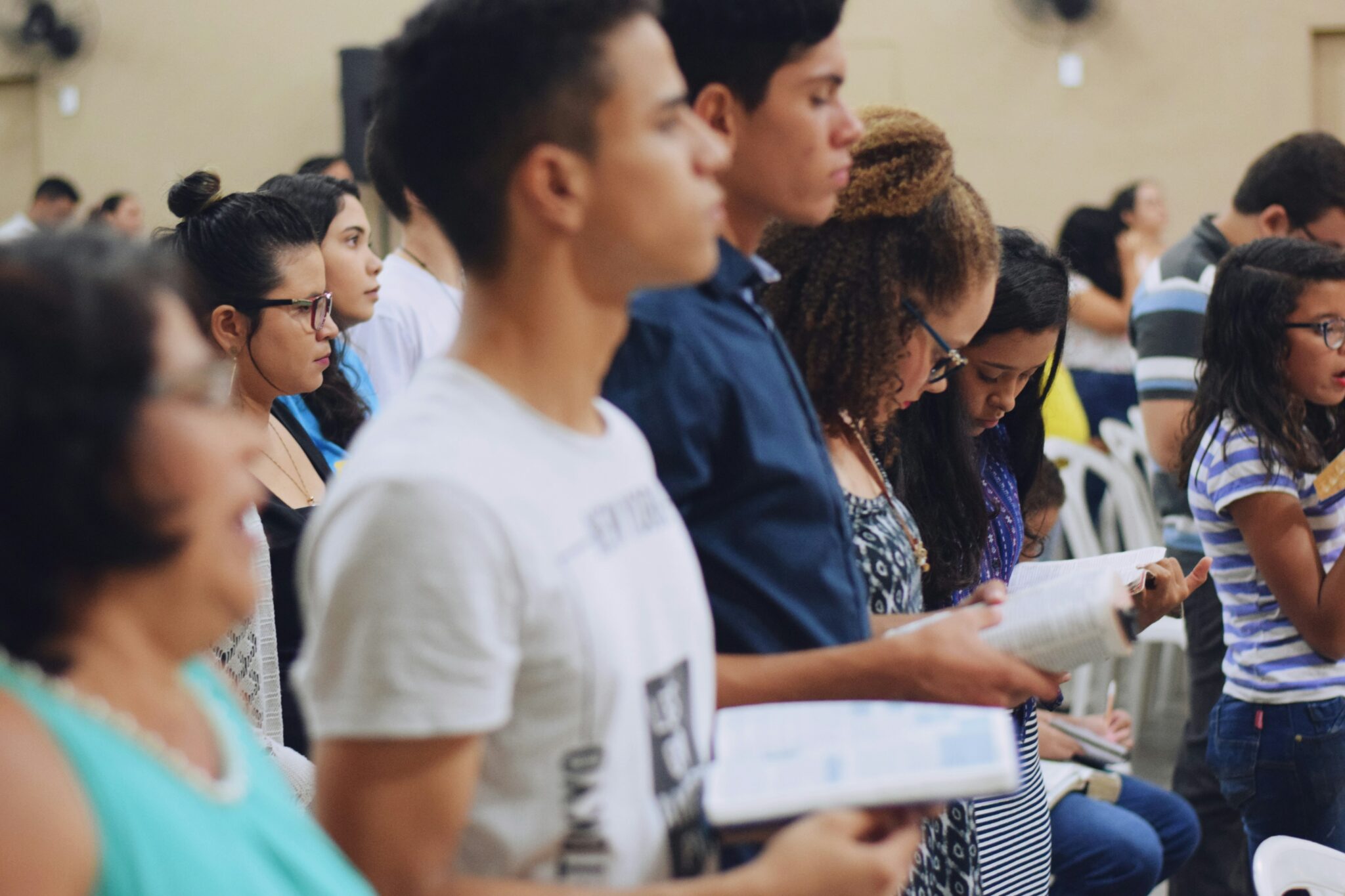The North American church needs cross-cultural skills now more than ever. People who look like us suddenly have very different worldviews than what we have. I think in mission history, we’ve often become familiar with the idea that people who are from different cultures or look different from us will have different ways of viewing Scripture, different ways of viewing God, different ways of viewing culture.
We are now seeing fracture lines throughout North American society that not only run along lines of race, ethnicity, and gender, but they also run in a myriad of different directions. There are so many fault lines that are being exposed in North American culture that work against the purpose of the church and the purpose of the gospel. The more fragmented we become, the more we need skills that are related to our ability to cross cultures.
This material was originally recorded as part of the Renovations Project. It has been lightly edited and condensed for clarity.
Get out of your cultural bubble
One of the things that is increasingly happening in the North American context is that people are living in their own cultural networks, their own cultural bubbles. Increasingly the skills that we need to truly and deeply and effectively understand each other are skills that you would develop if you were going into a completely different culture. They are skills that you would use if you were going to train as a long-term career missionary. They are skills that you would learn if you took a cross-cultural studies class in college. They are skills that you would learn if you went on a study abroad experience. They are skills that people are learning as they go on short-term mission trips.
How do you empathize with other people who are truly different from you? How do you imagine life walking in their shoes? What is it about their worldview that makes sense to them but maybe doesn’t make sense to you? These are conversations and discussions that are increasingly happening in our local churches, in our local communities, in our own homes. “I can’t believe that this person believes this about where we’re going as a society. It’s so different than what I think.” We’re just seeing increasing polarization. When that happens, you need skills to be able to knit things together. Of course, there are Christian practices, Christian habits, Christian postures that can get us there, but I think there’s also real skills that we need, knowledge that we need, abilities that we need to be able to cross cultural differences that are emerging increasingly within our own North American culture.
Reorient to the scriptural vision for the church
If I’m a leader today, looking at my church congregation, I’m thinking about what’s the vision of the church? I’m thinking about this incredible reality we see in the pages of Scripture, that God has these purposes, these overarching purposes for the world, for the cosmos. He has this huge plan of redemption. And where we are in salvation history at this point is that we in the church are at the very, very center of what God is doing.
When you read in places like Ephesians 3, you see that the church is to present the manifold wisdom of God. That can seem really like an odd passage of Scripture when you look at your local church congregation. You say, “I don’t think we look very wise today.” Or, “How on earth are we displaying any type of wisdom of God to our local community?” I would want to look at what’s the true purpose of the church, and of course there’s lots of debate on that, but it’s this idea of being a community of people together, who are diverse and who truly represent this kingdom reality that people who should not belong together in any other sphere of life are drawn together in Christ through the gospel.
Ephesians has been such an important part of Scripture in the last year or two, looking at what’s happening around the world, looking at what’s happening in our culture, and seeing that Paul is just so big on individual salvation, and also what’s next. Ephesians 2 is about the unity of people coming together. As a leader, I would look at my church and try to understand what’s going on. I would be asking big questions along the lines of whether my church is becoming more united over time, or is it not? Is my church growing in love for God and love for neighbor over time, or is it not? You start with that very, very big question, and then you’re asking, “Why is that happening?”
There could be so many different answers to that. I’m really drawn to the work of Jamie Smith, philosopher at Calvin University in Grand Rapids, Michigan, who is talking about affections, the things that shape us and draw us in particular directions. That’s also very much tied with imagination, so we’re drawn towards certain things. They pull on our affections, and they also shape the ways in which we think about the world.
I think our imaginations have been steered to think about the world in very particular ways. I think a recent and clear example is the increased politicization of our society. You have to be either one party or the other party; there’s no middle ground. That tugs at our churches, at the fabric of our churches. It shapes people’s affections. It shapes the way they imagine the current reality of the world, the society, the community in which they live, and what that vision is for the future.
Those are quite gospel-oriented questions. Where are we today? Where does our hope lie? Where are we going? We pastors are fighting against trends and patterns in our society that don’t work at the head knowledge, at the intellectual level. These ideas are shaping our hearts, and they’re shaping the ways in which we are drawn to identify with others, drawn to identify with ideas, and providing a way that invites us into the future.
Is that a gospel way of looking at things? The gospel tells us that we should be situated in Christ, that we have this totally different citizenship in heaven, and that a mark of what we’re doing as the church is the ways in which we’re united together and knit together through love and fellowship. Paul is big on unity, and he writes strongly about disunity. What gets Paul really worked up in the New Testament? In addition to theology and doctrine, it’s anybody that’s working against the unity of the church that draws his strongest criticism.
Look at society as a whole
What the church should be is one part. The other part is looking at society more broadly and really wanting to understand society. Here’s a challenge for church leaders. If they look too broadly, it becomes too much. You’re in a local community, you’re in a local city, and yet you’re trying to balance what’s happening in the country as a whole. I’m a news junky, but sometimes it can feel so overwhelming. Sometimes what’s happening in Washington, D.C., feels very close and very real to where we are today in whatever context we are in; other times it feels very removed and very distant. I encourage pastors to stay informed with what’s going on at the national level as well as the local level.
Ultimately, though, I think ministry is local and contextualized, and that’s always the tension that I point to as I’m teaching students about the global church. They’re always wanting to know how what I’m teaching relates to the local church. We really want to think globally—to be open to what’s happening globally. But ultimately, ministry in a large part is very localized. The extent to which pastors can understand their local communities and the needs of people is so important. That’s the needs of people around their church, in their city, in their communities, as well as the people that are in their church. All of that really can reorient what church should be.
Make time for relationship
Busyness is seen often as a badge of honor, being industrious, being enterprising, and being efficient. We think about parenting: the demands on parents today to make sure that their kids are able to experience every single after-school activity, to pursue many different hobbies.
There are so many pressures on families and individuals that rob us of the ability to have time together, and that is such a huge opportunity for the church to say, “Look, there’s something about time that we need to reclaim here.” Making time and space for each other actually opens us up to truly understand what’s happening in our churches and what’s happening in our local communities.
That sounds so basic, and yet there’s a real sense in which we’re just not present for each other. That’s why I love David Fitch’s work, where he talks about this idea of presence and this idea of how we build practices and habits that really encourage us and drive us towards this idea of spending time with each other, whether that’s around tables where we eat a meal, whether that’s around the communion table, or whether that’s as we serve in our local community. The idea that we actually show up for each other is almost a bit of a radical idea at this point. But it’s something that the church should be all about.

Renew your church’s imagination for ministry
The Renovations Project helps leaders learn, together.
- Thought-provoking masterclasses
- Personalized coaching
- Immersive visit to a ministry innovation hub
- Ministry innovation grants up to $5,000
Disclaimer: Some of the links on this page are affiliate links, meaning that, at no cost to you, we will earn a commission if you click through and make a purchase. However, we were not paid to review or recommend any of the links on this page.

Dr. Graham McKeague
Dr. Graham McKeague is dean of professional and graduate studies at Cornerstone University in Grand Rapids, Michigan. He equips ministry leaders to serve in increasingly diverse cultural contexts. He participated in listening sessions about innovation hosted by the Reformed Church in America.



